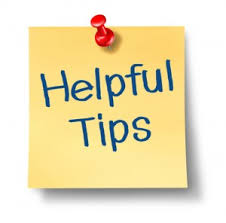Podcasts are a fabulous way to get the word out about your book and business. Most shows focus on particular subject matter, so the listening audience is made up of people very interested in that particular topic, rather than being more broad-based, which is the case with many radio shows.
Whether you’re hosting a show, or appearing as a guest on another podcast, the audience is interested in you and are potentially ready to buy your product, or at least opt-in on your website or blog to receive your compelling gift or offer. Then you have the opportunity to continue to engage with them and eventually make them a customer or client.
There are plenty of resources that talk about the kind of equipment to get and software to use when developing a podcast. This post, however, contains tips on how to sound like a pro, so here goes:
Actively listen to other podcasts. There’s nothing like listening to others to figure out what you love and what you hate. Pay attention to the host and the guest. Does the host allow the guest to share his or her ideas, or is the host competing with the guest as to who knows more about the topic. (I hear this a lot!) What is the format of the podcast? How long is it? Is there intro music or does the host come in cold?
Eliminate crutch words. Crutch words are those words or phrases that we all have a tendency to use too much. Listen to yourself and pay attention. When you hear overused words and phrases, drop them as quickly as possible. Here are some common ones: “uh”, “um”, “you know”, “right?”, “yeah”, “that’s great”, etc., etc. A crutch word can be just about anything. As a guest, watch that you don’t respond too often to questions by saying, “That’s a very good question.” You can use that once in an interview; maybe twice. But beyond that, it is a crutch and needs to be squashed. For many, it is simply a way to give you extra time to come up with your response. Try just pausing before you speak and think. It’s OK. You don’t have to fill every moment of silence. Crutch words are very distracting to the listener. Pay attention and get rid of them.
Don’t interrupt. We do it all the time during natural conversations–some people do it more than others–but when doing an interview on a podcast, it can be very annoying. For one thing, it often means the listener misses what both the host and the guest are saying. (Think of that TV show The View. Granted, it’s TV and they should know better, but they interrupt one another all the time and it can be very irritating.) One thing you’ll notice about professional radio people is that they allow their guests to complete their thoughts without interrupting them or interjecting a lot of uh huhs and yeses along the way..
Stop making noise. Sound carries. Little things can ruin a recording, including tapping on the desk or not closing a window. (Think of the neighbor who is in love with the leaf blower at all hours of the day, or the other neighbor who likes to scream at the kids. You get the idea.) Mute your phone so notifications don’t ring through. Put a sign on the door that no one is to come in while you’re doing an interview. You may be blissfully unaware of any noise around you, until you do a podcast recording. Then you will hear everything.
Refuse to be boring. Boring is boring. <Yawn.> Have colorful examples to share. Tell stories. When you share your key messages, use words that are active and descriptive. Be interesting.
Don’t be redundant. “I’ve always wanted to ask you this question.” Skip that. Just ask the question.
Be helpful. Don’t make the host do all the work. Rather than just answering the host’s question and stopping, as you’re answering, lead the conversation toward the next key message you want to share. Tee it up. Make it easy. The host won’t always go there, but at least you’ve given the opportunity and you aren’t just sitting there like a bump on a log waiting for the host to do all the work.
Get media trained. Memorize your key messages forward and backward. Create an interview launch. Learn to create sound bites. Be memorable. It’s good to know how to handle any kind of controversy, and media training can help you do that.
Vary your voice. When it comes to podcasts, the listener responds to your voice. There will probably be show notes, and they can visit your website for more on you, but when it comes to hearing you deliver your message, it’s through your voice. If you tend to speak in a dull, monotone voice, take some time and practice using your vocal chords more effectively. Record yourself and listen back. Listen to other podcasters. Imitate them. Change your pitch. Slow down and speed up. Use pauses. All of these things can help you sound more confident, interesting and compelling.
There are a lot of tips and strategies for sounding like a pro on podcasts. I will do another post on this at a later date, but for now, practice these and you will find yourself sounding better and better all the time.
To your success!
Joanne
P.S. You may already know my handle: The Media Polisher. I’ve decided to use that as the name for the podcast I am resurrecting. The Media Polisher with Joanne McCall. First episode is coming up soon!

